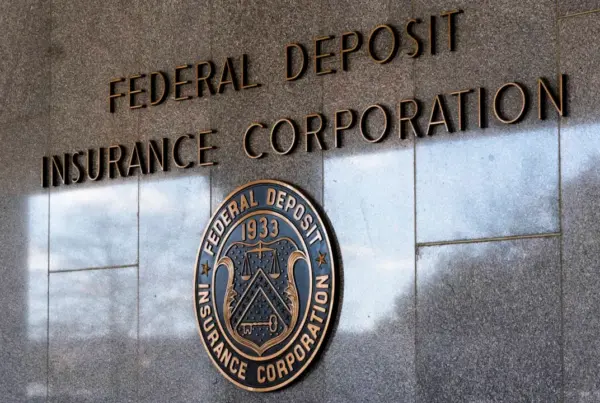“`html
FDIC’s Proposed Brokered Deposits Rule: Essential Insights for Financial Institutions
On August 23, 2024, the Federal Deposit Insurance Corporation (FDIC) proposed a new rule concerning brokered deposits, marking a significant regulatory shift aimed at enhancing the stability of the banking system and safeguarding depositors. This proposal is particularly noteworthy as it seeks to redefine the regulatory framework governing deposit brokers, a category that has evolved significantly with the rise of fintech companies and digital banking. Historically, the FDIC has enacted various measures to mitigate risks associated with brokered deposits, especially following the financial crisis of 2008. The primary concern addressed by this regulatory action is the need for increased transparency and accountability in the brokered deposit market.
Key Regulatory Changes & Analysis
1. Expansion of the Definition of Deposit Broker
The proposed rule significantly broadens the definition of a deposit broker, now including a wider array of entities involved in deposit solicitation and placement.
- New Definition: Entities facilitating the placement of deposits on behalf of others, regardless of compensation, will now be classified as deposit brokers.
- Comparison to Previous Rule: The prior definition primarily targeted those receiving fees for their services, thereby limiting regulatory oversight. The new definition aims to capture a broader spectrum of deposit placement activities.
2. Enhanced Reporting Requirements
The proposed regulations introduce more stringent reporting obligations for financial institutions regarding their brokered deposits.
- New Reporting Obligations: Financial institutions must report the total amount of brokered deposits and disclose the sources of these deposits to the FDIC.
- Impact: This increased transparency is designed to enable the FDIC to monitor risks associated with brokered deposits more effectively.
3. Restrictions on Brokered Deposits for Certain Institutions
The proposed rule imposes stricter limitations on the acceptance of brokered deposits by institutions that are not well-capitalized.
- Capital Requirements: Banks that do not meet specific capital thresholds will face restrictions on their ability to accept brokered deposits.
- Rationale: This measure aims to mitigate the risks associated with reliance on potentially volatile funding sources, thereby promoting greater financial stability.
4. Clarification of Exemptions
The FDIC has clarified the exemptions applicable to certain deposit placements, particularly for community banks.
- Exemptions for Community Banks: Smaller institutions may continue to accept brokered deposits under specific conditions without being classified as deposit brokers.
- Significance: This clarification is intended to preserve the operational flexibility of community banks while ensuring adequate regulatory oversight.
Legal and Industry Implications
The proposed changes will impose significant compliance burdens on affected financial institutions, particularly smaller banks and fintech companies.
- Compliance Costs: Institutions may incur substantial costs related to system upgrades, staff training, and legal consultations to ensure adherence to the new requirements.
- Regulatory Risks: Non-compliance could result in enforcement actions, including fines and restrictions on deposit-taking activities.
Recent litigation concerning brokered deposits underscores the potential for legal challenges against the FDIC’s authority to impose such regulations. Financial institutions should remain vigilant regarding administrative law considerations and prepare for potential judicial review of the final rule.
Recommended Actions & Compliance Strategies
Affected financial institutions should take proactive steps to ensure compliance with the proposed regulations:
- Review Internal Policies: Conduct a thorough review of existing policies related to brokered deposits and update them to align with the new definitions and reporting requirements.
- Prepare for Reporting: Establish systems for accurate reporting of brokered deposits, including necessary data collection and analysis.
- Engage Legal Counsel: Consult with legal advisors to assess the implications of the proposed rule and prepare for potential compliance challenges.
- Public Comments: Institutions are encouraged to submit comments on the proposed rule during the public comment period to express concerns or suggest modifications.
Conclusion & Next Steps
The FDIC’s proposed rules on brokered deposits represent a significant shift in regulatory oversight, with far-reaching implications for financial institutions. The timeline for implementation will depend on the completion of the public comment period and the subsequent finalization of the rule. Stakeholders should remain alert for additional regulatory developments and prepare for potential legal or legislative challenges that may arise in response to the new framework.
In summary, the proposed rule emphasizes the need for enhanced transparency and stability within the brokered deposit sector, necessitating immediate attention and action from affected parties. Institutions that proactively adapt to these regulatory changes will be better positioned to navigate the evolving financial landscape and maintain compliance with FDIC regulations.
“`


